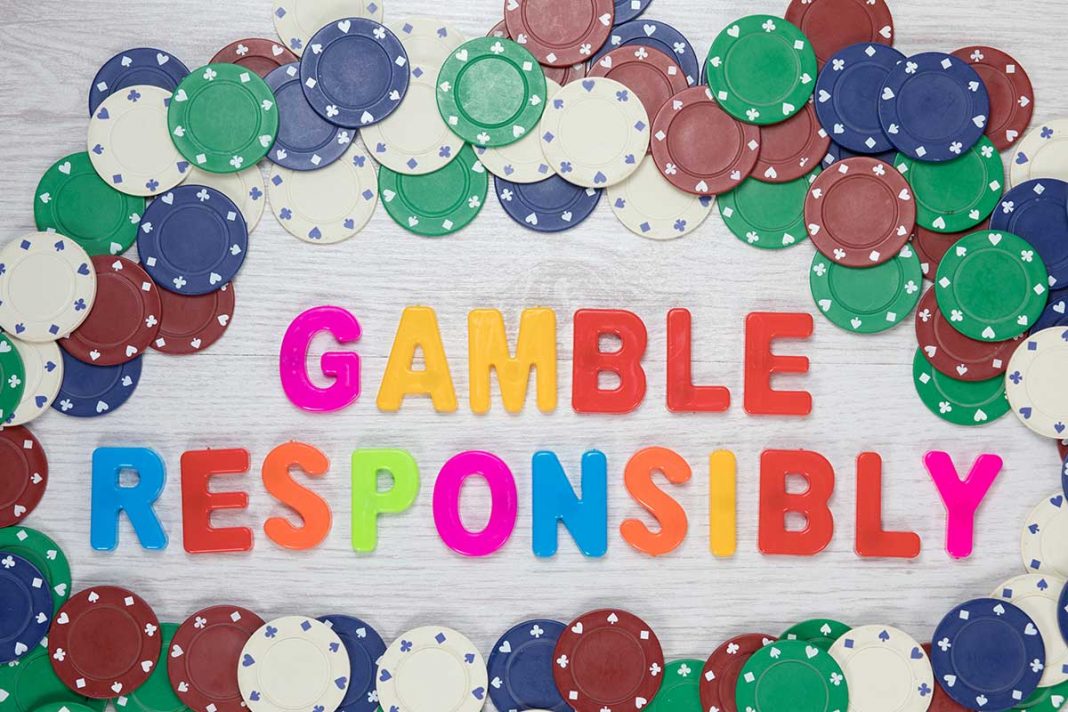LITTLE CURRENT – The temptations and connections to gambling are ever-present in modern society, from casinos and horse races to stock market investments or even the community bingo hall and while these activities can turn into addictions, speakers at Let’s Deal With It, Mnaamodzawin Health Services’ first-ever responsible gambling event, told the participants how they can be part of a healthy lifestyle if used in moderation.
“It’s in our (Anishinaabe) culture, but people don’t always have restraint,” said Mnaamodzawin Health Services allied health manager Rebecca Milne, who organized the event.
The first speaker of the morning was Aaron Tyance, the aboriginal responsible gambling awareness co-ordinator at Ontario Native Women’s Association in Thunder Bay. His home community is Gull Bay First Nation, a small community roughly two-and-a-half hours north of Thunder Bay by road.
“It’s been proven that Anishinaabe people are two or three times more likely than other people to have a gambling problem,” said Mr. Tyance.
Paradoxically, he said, gambling has been part of Anishinabek culture for years and has become a kind of ceremony or community celebration. Mr. Tyance is beginning his journey to become a healer and said the best way to deal with gambling is to treat it as a ceremony that deserves respect.
“We don’t discourage it because it’s a very social aspect for our people,” said Mr. Tyance. “But gambling can get out of hand. You need to know your limits when you gamble.”
Mr. Tyance said addictive behaviours arise in the process of trying to fill an unmet need or a void in one’s life, something that has been prevalent in First Nations due to the effects of colonialism such as removing power from Indigenous matriarchs who previously offered a considerable amount of guidance and wisdom.
“The hardest part for people is living with the stigma of addiction, especially gambling addiction. They can feel like dirt. When we get over that hump it’ll be a lot easier to go forward,” he said.
Problem gambling can ruin lives, such as a story he shared of a woman who was given $20,000 from family members to do their Christmas shopping in Thunder Bay but ended up losing it all at the casino.
“The real trap is called ‘chasing the dollar,’ which is trying to win back what you’ve lost. That’s what happened to her,” he said.
Mr. Tyance passed out pieces of elk leather, sage, sweetgrass, tobacco and cedar for everyone to make small medicine pouch bundles that they could carry on their person and use for smudging.
“Bundles are very important to us because it’s almost like a cell phone—it holds all of our information and all our gifts that we carry, and we’re able to use it to call upon our Creator to help us during tough times,” he said.
Representatives from Wiikwemkoong’s Ngwaagan Gamig (Rainbow Lodge) Recovery Centre spoke about what their centre offers, which also align with Mr. Tyance’s doctrine of harm reduction rather than abstinence.
Twice annually, Ngwaagan Gamig offers gambling education sessions with cultural teachings. Once annually it runs a residential treatment program during five days of March Break to increase participants’ resiliency and strength for the future.
For the first time this year, Ngwaagan Gamig will partner with a credit consultation agency to offer assistance to problem gamblers who need financial guidance as part of their recovery.
The next speaker was Mark Forsythe of the clinical outpatient addictions and gambling service at Sudbury Mental Health and Addictions Centre. His presentation centred on things to be aware of when thinking of problem gambling.
“A lot of people get into situations where (gambling) can have a huge, drastic effect on their lives but they don’t realize it at the time,” he said.
A focus of his presentation was gambling in local communities, such as bingo halls. A lot of individuals who attend these games regularly are going because they don’t have enough money to get them through the week and they are hoping to win enough money to survive.
“Gambling is one of the more subtle addictions as far as outward appearance,” said Mr. Forsythe. “There’s a lot of stigma and people are suffering from gambling because they don’t want to be lumped in with other addictions.”
The final presenter of the day was Sheila Wahsquonaikezhik, director of Indige-Spheres to Empowerment, also based in Thunder Bay. Through her 120-slide presentation she shared a story about gambling within Northern communities and the statistics associated with them.
“There’s a co-morbidity between gambling and anxiety and depression,” said Ms. Wahsquonaikezhik, noting that “100 percent of the youth we’re involved with have gambled.”
Her organization was founded in 2016 and it devotes itself to empowerment and creating resilient youth through cultural teachings in an effort to improve the health and well-being of Indigenous peoples in Canada and the world.
“The tools we use address deeper issues like sexual abuse, violence and having to fly to cities to attend high schools,” said Ms. Wahsquonaikezhik. “We’re very much positivity based; we have youth identify their gifts and teach them to use those to find resiliency.”
The activities for these goals include theatre, songwriting and Afro-flow yoga, with instructors for the various programs coming from as far as New York and Boston.
Ms. Milne said she was happy that the event ran smoothly, but said she hoped the next round would bring out even more people to learn about this hidden problem and ways to address it.
“Keep an eye out for (Mnaamodzawin), because we advertise for all sorts of events,” she said. “All our events are open to everyone, not just the First Nations we serve.”
This event was made possible through a grant from the Anishinabek Nation.





